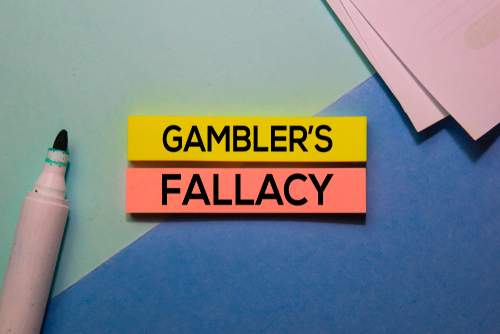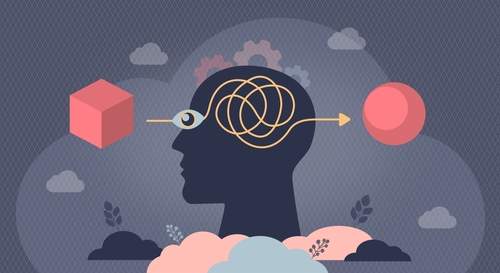In the world of casino gaming, there’s more than meets the eye. Beyond the flashing lights and enticing sounds lies a fascinating realm of human psychology. Understanding how our minds work when it comes to gambling can provide valuable insights into gameplay strategies and responsible gaming practices. In this article, we delve into the psychology of gambling, exploring the intricate relationship between the mind and the thrill of the game.
The Psychology of Gambling: The Allure of Chance

At the heart of gambling lies the allure of chance. Humans have always been drawn to uncertainty and the potential for big wins. We examine why our brains are wired to seek out risk and the thrill of taking chances. From the rush of anticipation to the release of dopamine when we win, we explore the psychological mechanisms that make gambling so enticing.
- The Thrill of Anticipation: The anticipation of an uncertain outcome is exhilarating. Whether it’s the spin of the roulette wheel, the shuffle of cards, or the roll of the dice, the moment before the result is revealed holds an undeniable excitement. Our brains are wired to seek novelty and stimulation, and gambling offers a constant stream of unpredictable outcomes that captivate our attention.
- Dopamine and the Winning High: When we engage in gambling and experience a win, our brains release dopamine, a neurotransmitter associated with pleasure and reward. The surge of dopamine creates a euphoric sensation, reinforcing the connection between the act of gambling and the feeling of satisfaction. This neurological response reinforces the allure of chance, as our brains associate the possibility of winning with a pleasurable and rewarding experience.
- Psychological Mechanisms: Gambling exploits various psychological mechanisms that contribute to its allure. One such mechanism is the gambler’s fallacy, where individuals believe that past outcomes influence future results. This misconception fuels the belief that a win is due after a series of losses, or vice versa, leading to a sense of anticipation and hope. Additionally, the concept of near-misses, where players narrowly miss a win, activates the brain’s reward system, triggering a desire to keep playing in pursuit of the elusive victory.
- Risk and Reward: Gambling is inherently linked to risk and reward. The potential for a significant payoff, even with a small investment, heightens the appeal of gambling. Our brains are wired to seek rewards and the associated pleasure, and gambling provides a platform where the possibility of a substantial win exists. This combination of risk and reward creates an adrenaline-fueled experience that many find captivating and exhilarating.
By understanding the allure of chance, we can appreciate why gambling has such a strong hold on individuals. The anticipation, the release of dopamine, and the psychological mechanisms at play all contribute to the thrilling and captivating nature of gambling. However, it is essential to approach gambling with caution and responsible behavior, ensuring that the pursuit of chance remains an enjoyable and controlled activity.
The Gambler’s Fallacy

One curious phenomenon that often influences players is the Gambler’s Fallacy. We delve into this cognitive bias, which leads us to believe that past outcomes influence future results in games of chance. We uncover the fallacy behind this thinking and explore how it impacts decision-making at the casino tables.
- The Fallacy Unveiled: The Gambler’s Fallacy stems from a misunderstanding of probability and randomness. It occurs when individuals believe that a series of past outcomes will somehow impact the likelihood of future outcomes. For example, if a roulette wheel has landed on red for the last ten spins, the Gambler’s Fallacy suggests that black is more likely to occur in the next spin to “balance out” the results. In reality, each spin of the wheel is independent and unaffected by previous outcomes.
- Hot Hand Fallacy vs. Gambler’s Fallacy: The Gambler’s Fallacy is often confused with the Hot Hand Fallacy. While the Hot Hand Fallacy relates to the belief that a player who has experienced a winning streak is more likely to continue winning, the Gambler’s Fallacy pertains to the misconception that the occurrence of certain outcomes in a random sequence will influence future outcomes.
- Psychological Factors: The Gambler’s Fallacy can be attributed to several psychological factors. Our brains naturally seek patterns and attempt to make sense of randomness. We often find comfort in the idea that events are interconnected and follow a predictable pattern. This inclination towards finding patterns can lead us astray when it comes to games of chance.
- Impact on Decision-Making: The Gambler’s Fallacy can have a significant impact on decision-making at the casino tables. Players may adjust their bets based on perceived patterns or sequences, mistakenly thinking that the odds are now in their favor. This fallacy can lead to irrational behavior, such as chasing losses or overestimating the likelihood of certain outcomes based on previous results.
- Overcoming the Fallacy: Recognizing and understanding the Gambler’s Fallacy is crucial in making informed decisions while gambling. Embracing the principles of probability and randomness is key to avoiding this cognitive bias. Remembering that each outcome in a game of chance is independent and unaffected by past results can help maintain a rational approach to gambling.
By unraveling the Gambler’s Fallacy, we can better navigate the psychology of gambling. It is important to approach games of chance with a clear understanding of probability and avoid being swayed by illusory patterns. Making informed decisions based on a rational assessment of the odds will lead to a more enjoyable and responsible gambling experience.
The Role of Skill and Perception: Balancing luck and control
While luck plays a significant role in gambling, skill, and perception also come into play. We examine how our perception of skill affects our enjoyment of the game, and how the belief in having control over outcomes can influence our decisions. Understanding the interplay between skill, perception, and luck can provide valuable insights into maximizing gameplay experiences.
- Perception of Skill: Our perception of skill in gambling can greatly impact our enjoyment of the game. Whether it’s poker, blackjack, or sports betting, the belief that our skills can influence the outcome enhances our engagement and sense of control. This perception can be driven by a variety of factors, including past successes, knowledge of the game, and personal expertise. Even though luck ultimately determines outcomes, the perception of skill can contribute to a more immersive and fulfilling gambling experience.
- Illusion of Control: The illusion of control is closely tied to our perception of skill. It refers to the belief that we have more control over outcomes than we actually do. This illusion can lead individuals to overestimate their abilities and make decisions based on a false sense of control. For example, a poker player may believe that their knowledge of the game and ability to read opponents give them an edge, despite the inherent randomness of card distributions. Understanding the role of luck and maintaining a realistic assessment of one’s skills is crucial in avoiding the pitfalls of the illusion of control.
- Skill-based Games: In certain forms of gambling, such as poker and sports betting, skill plays a more prominent role. These games incorporate elements of strategy, decision-making, and knowledge that can influence outcomes to some extent. The mastery of these skills can enhance the chances of success and contribute to a more satisfying gambling experience. However, it is important to recognize that even in skill-based games, luck remains a significant factor, and skill alone cannot guarantee consistent wins.
- Balancing Luck and Skill: Finding the right balance between luck and skill is key to maximizing gameplay experiences. Recognizing that luck is inherent in gambling and that outcomes are ultimately unpredictable helps to manage expectations. Embracing the skill aspect of certain games and continuously improving one’s abilities can enhance enjoyment and potentially improve results. However, it is essential to maintain a realistic understanding of the role of luck and avoid falling into the trap of overestimating control.
By understanding the interplay between skill, perception, and luck, we can approach gambling with a balanced mindset. Recognizing the enjoyment that comes from the perception of skill while acknowledging the influence of luck allows us to fully immerse ourselves in the experience. Striving to improve our skills, making informed decisions, and embracing the uncertainty of outcomes contribute to a more fulfilling and engaging gambling journey.
The Power of Rewards and Reinforcement
Rewards play a pivotal role in shaping our behavior, and gambling is no exception. We delve into the power of rewards and reinforcement in casino gaming. From intermittent reinforcement schedules to the impact of near-misses, we explore how these psychological factors keep players engaged and coming back for more.
- Intermittent Reinforcement: One of the most influential aspects of rewards in gambling is the principle of intermittent reinforcement. This concept refers to the occasional and unpredictable nature of rewards, rather than a consistent pattern. Unlike continuous reinforcement, where rewards are provided after every occurrence of a desired behavior, intermittent reinforcement creates a sense of anticipation and excitement. Slot machines are a classic example, as players never know when they will hit a winning combination. This unpredictability keeps players engaged and seeking that elusive reward, creating a thrilling experience.
- Near misses: Another psychological phenomenon tied to rewards is the allure of near-misses. A near-miss occurs when a player comes close to winning but falls just short. Interestingly, these near-misses can be highly motivating, even more so than clear losses. They create a sense of hope and belief that the next attempt might lead to success, fueling the desire to keep playing. Slot machines often utilize near-miss outcomes, with symbols stopping just one position away from a winning combination. This near-win experience can intensify players’ drive to continue gambling, as they perceive themselves as being just moments away from a significant reward.
- Reinforcement Schedules: Casinos carefully design their games and gambling activities to incorporate various reinforcement schedules. These schedules determine how often and when rewards are delivered, influencing player behavior and engagement. Different schedules, such as fixed ratio or variable ratio, can impact the frequency and predictability of rewards. Each schedule has its unique effects on motivation and persistence. For example, a variable ratio schedule, where rewards are given after an unpredictable number of responses, is particularly effective in maintaining high levels of engagement. These reinforcement schedules create a sense of excitement and encourage players to continue gambling in anticipation of the next reward.
- Social Rewards: In addition to monetary rewards, social rewards can also play a significant role in gambling. The social aspect of casino gaming, such as interactions with other players, the thrill of competition, and the sense of belonging to a community, can be highly rewarding. Winning a poker tournament, for instance, not only brings financial gains but also social recognition and prestige. The power of social rewards further enhances the appeal of gambling and contributes to sustained engagement.
Understanding the power of rewards and reinforcement in casino gaming provides valuable insights into player behavior and engagement. The intermittent nature of rewards, the allure of near-misses, and the strategic use of reinforcement schedules all contribute to the captivating nature of gambling. Recognizing these psychological factors allows both players and industry stakeholders to make informed decisions and create responsible gambling environments that prioritize enjoyment while maintaining a healthy balance.
By understanding how rewards shape behavior and engagement, players can approach gambling with a mindful perspective. Recognizing the influence of intermittent reinforcement, being aware of the allure of near-misses, and understanding the role of reinforcement schedules can help individuals make informed decisions and maintain a healthy relationship with gambling. Additionally, industry stakeholders can implement responsible gaming practices that prioritize player well-being and enjoyment while ensuring a safe and regulated gambling environment.
Cognitive Biases and Decision-Making

Our minds are prone to cognitive biases that can significantly impact our decision-making abilities at the casino. We highlight common cognitive biases such as the availability heuristic, loss aversion, and the illusion of control. By understanding these biases, players can make more informed and rational decisions while engaging in gambling activities.
- Availability Heuristic: The availability heuristic is a cognitive bias where individuals rely on easily accessible information when making judgments or decisions. In the realm of gambling, this bias can lead players to overestimate the likelihood of certain outcomes based on memorable or vivid examples they have encountered or heard about. For example, if someone recently won a large jackpot at a casino, other players may perceive their chances of winning as higher than they actually are. Being aware of the availability heuristic can help players make more objective decisions by considering a broader range of probabilities rather than relying solely on vivid instances.
- Loss Aversion: Loss aversion is a cognitive bias where individuals tend to weigh losses more heavily than gains. In gambling, this bias can manifest in players’ reluctance to quit after experiencing losses or their tendency to take higher risks to recover previous losses. The fear of missing out on potential winnings or the desire to break even can cloud judgment and lead to irrational decision-making. Recognizing the influence of loss aversion can help players set limits and make more rational choices, focusing on long-term outcomes rather than short-term losses.
- Illusion of Control: The illusion of control is a cognitive bias that leads individuals to believe they have more control over random events than they actually do. In the context of gambling, players may feel a sense of control over outcomes through their betting strategies or rituals. This illusion can result in overconfidence and excessive risk-taking. Understanding the illusion of control can help players approach gambling with a more realistic perspective, recognizing that outcomes are largely determined by chance rather than individual skills or actions.
- Confirmation Bias: Confirmation bias is the tendency to seek out and interpret information that confirms one’s existing beliefs or expectations while ignoring contradictory evidence. In gambling, this bias can lead players to selectively recall and focus on their wins, reinforcing their perception of being skilled or lucky. Conversely, they may downplay or dismiss losses as temporary setbacks or bad luck. Recognizing confirmation bias can help players evaluate their experiences more objectively, considering both positive and negative outcomes to make more informed decisions.
By understanding the influence of cognitive biases on decision-making, players can approach gambling activities with greater awareness and rationality. Being aware of the availability heuristic can help players avoid overestimating their chances of winning based on memorable examples. Recognizing loss aversion can assist in setting limits and managing risk effectively. Understanding the illusion of control allows players to embrace the element of chance in gambling and make decisions based on realistic expectations. Finally, acknowledging confirmation bias helps players evaluate their experiences objectively, ensuring a balanced perspective on wins and losses.
It is important for both players and industry stakeholders to be mindful of cognitive biases and their impact on decision-making in gambling. Implementing responsible gaming practices, providing education on cognitive biases, and encouraging self-awareness can foster a more informed and rational approach to gambling. By understanding these biases, players can make more objective decisions, enhance their overall experience, and maintain a healthy relationship with gambling activities.
Conclusion
The psychology of gambling offers a captivating perspective on the world of casino gaming. By understanding how the mind affects gameplay, players can approach their gambling experiences with greater knowledge and insight. From the allure of chance to the power of rewards and the impact of cognitive biases, delving into the psychology behind gambling enhances our understanding of this captivating pastime. So, the next time you step into a casino, remember to keep an eye on both the cards and the fascinating workings of your own mind.
